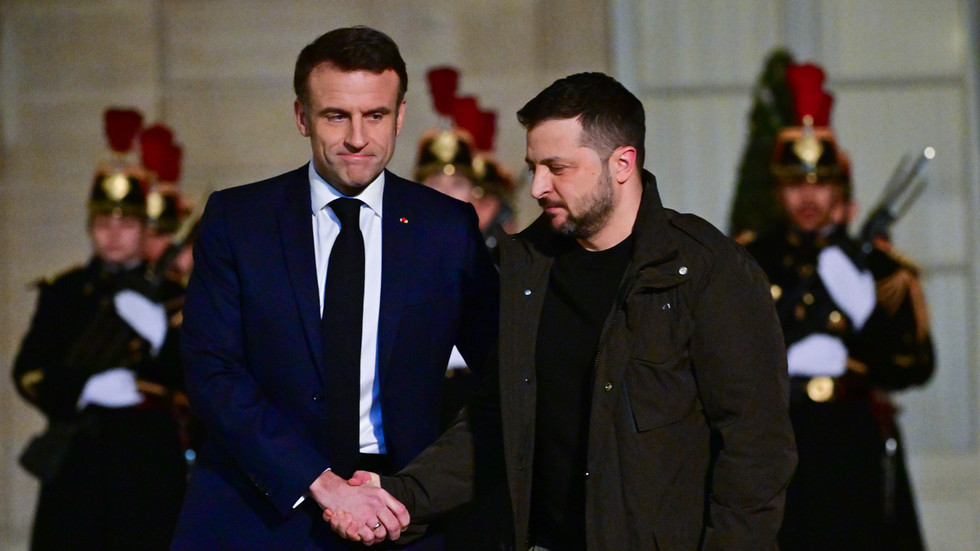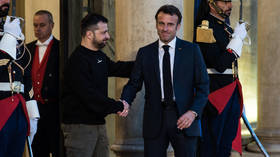
The ten-year pact mirrors the defense agreements Kiev recently signed with Berlin and London

French President Emmanuel Macron greets Ukrainian President Vladimir Zelensky in Paris on February 16, 2024 © Christian Liewig – Corbis / Getty Images
France and Ukraine signed a bilateral security pact during Ukrainian President Vladimir Zelensky’s visit to Paris on Friday. While President Emmanuel Macron did not offer Kiev any ironclad military commitments, he promised another €3 billion in aid over the rest of 2024, as well as “cooperation” in the area of artillery.
The text of the pact states that France looks positively at the prospect of Ukraine’s accession to NATO, as “a useful contribution to peace and stability in Europe.” The largely symbolic deal is designed to help “pave the way towards Ukraine’s future integration into the EU and NATO,” French media noted, citing officials.
The security accord follows a similar one struck with Germany earlier in the day, and another inked with the UK last month. All three security agreements are set to last ten years.
READ MORE: Germany and Ukraine sign ‘long term’ security deal
Last month, Macron announced that France would supply Kiev with 40 more SCALP-EG long-range cruise missiles and “hundreds of bombs,” promising to finalize the bilateral security agreement on an upcoming trip to Kiev. The trip, which was to run from 13-14 February, was called off by the French side due to security concerns, according to French media.

Zelensky is set to entreat Western sponsors for more financing at the Munich Security Conference on Saturday, while the situation on the frontlines of the Ukraine-Russia conflict is escalating, with Kiev facing severe personnel and ammo shortages.
Moscow has repeatedly condemned the furnishing of long-range weaponry such as French SCALP-EG cruise missiles, which Kiev has used to strike Russian infrastructure in Donbass, causing numerous civilian deaths. Russia maintains that further military aid to Kiev will only put off the end of the conflict without changing its course, and lead to unneeded deaths.




